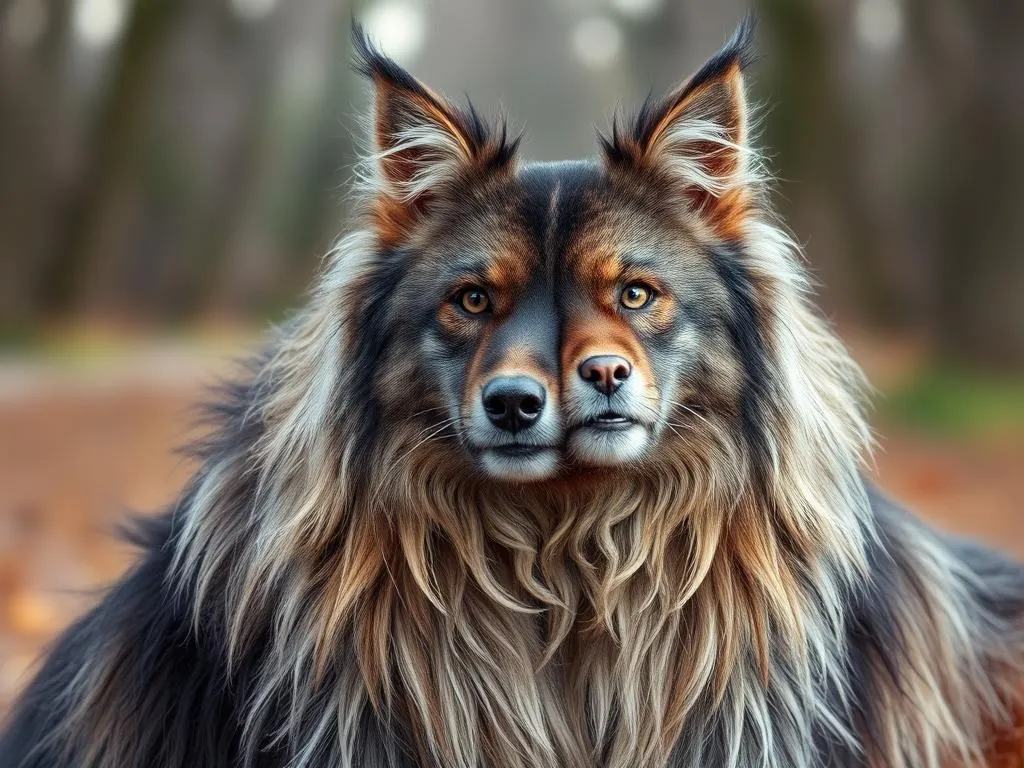
Maine Coons are one of the largest and most popular domestic cat breeds, known for their friendly demeanor and sociable nature. When considering adding a dog to a household that already includes a Maine Coon, many pet owners wonder: will a Maine Coon get along with dogs? Understanding the personalities of both Maine Coons and dogs is crucial to fostering a harmonious living environment. This article delves deep into the relationship between these two beloved pets, exploring their characteristics, socialization needs, and how to ensure a peaceful cohabitation.
Understanding Maine Coons
History and Origin
The Maine Coon breed has a storied history, believed to have originated in the United States, specifically in the state of Maine. They are often regarded as one of the oldest natural breeds in North America. Their origins are steeped in folklore, with some suggesting they are descendants of longhaired cats brought over by sea captains. Others theorize they are a crossbreed between domestic cats and raccoons, a myth that contributes to their name. What sets Maine Coons apart is their distinctive physical characteristics, including tufted ears, bushy tails, and large, expressive eyes.
Temperament and Behavior
Maine Coons are renowned for their friendly and affectionate nature. Unlike some cat breeds that can be aloof, Maine Coons thrive on companionship. They are often described as gentle giants, displaying a playful curiosity that makes them engaging pets. Their behaviors include following their owners from room to room, vocalizing with a soft chirp, and even enjoying playtime with toys.
Their sociable temperament often translates into good relationships with other pets, making them potential candidates for cohabitation with dogs. However, individual personalities can vary, and some Maine Coons may exhibit more independent traits.
Socialization Needs
Socialization plays a vital role in shaping a Maine Coon’s behavior. Early exposure to various environments, people, and animals can help them develop into well-adjusted adults. Kittens that are socialized properly are more likely to be friendly and adaptable, which is essential for compatibility with dogs. Owners should introduce their Maine Coons to different sounds, sights, and other pets to foster their social skills.
Understanding Dog Behavior
Dog Breeds and Personalities
Just as Maine Coons have unique traits, dog breeds also exhibit diverse personalities. Some commonly known breeds include Labrador Retrievers, Golden Retrievers, and Beagles, all known for their friendly dispositions. Conversely, certain breeds, like terriers, may possess more assertive or territorial traits.
When contemplating the question, will a Maine Coon get along with dogs, it is essential to consider the dog’s breed and its temperament. A calm, gentle dog is more likely to coexist peacefully with a Maine Coon than a high-energy breed that might overwhelm them.
Dog Socialization
Socialization is equally crucial for dogs. Well-socialized dogs are exposed to various animals and environments, allowing them to develop appropriate behaviors towards other pets. Signs of a well-socialized dog include:
- Calmness around other animals
- Curiosity without aggression
- Ability to follow commands in distracting situations
A well-socialized dog is more likely to accept a Maine Coon into its home.
Factors Influencing Compatibility
Size and Energy Levels
The size and energy levels of both the Maine Coon and the dog are significant factors in their compatibility. Maine Coons are large cats, often weighing between 10 to 25 pounds. Therefore, pairing them with a small, hyperactive dog may lead to discomfort or stress for the cat.
Conversely, larger, calmer dog breeds, such as Golden Retrievers or Newfoundlands, typically have a gentle disposition and can coexist well with Maine Coons. Understanding the energy levels of both pets will help tailor the right environment for interaction.
Individual Personalities
While breed characteristics provide a general guideline, individual personalities greatly influence the relationship between a Maine Coon and a dog. Some cats may be more tolerant, while others may be more reserved.
Consider a case where a Maine Coon named Oliver, known for his friendly demeanor, was introduced to a laid-back Bulldog named Bruno. Their personalities complemented each other, leading to a successful friendship characterized by mutual respect and playful interactions.
Introduction Techniques
Introducing a Maine Coon to a dog should be a gradual process. Here are some best practices to ensure a smooth introduction:
-
Separate Spaces: Start by keeping the pets in separate areas of the house. Allow them to acclimate to each other’s scents by swapping bedding or toys.
-
Controlled Meetings: Use a leash for the dog during initial introductions. Keep the dog calm and allow the Maine Coon to approach at its own pace.
-
Positive Reinforcement: Reward both pets with treats and praise for calm behavior during introductions.
Creating a safe environment is essential for both pets to build trust and comfort.
Real-Life Experiences
Success Stories
Many pet owners share heartwarming tales of successful cat-dog pairings. For instance, Sarah, a proud owner of a Maine Coon named Bella and a Labrador named Max, reports that they have become inseparable companions. Bella often curls up next to Max during their afternoon naps, showcasing the potential for a loving relationship between a Maine Coon and a dog.
Challenges Faced
However, introducing a Maine Coon to a dog isn’t without its challenges. Some pet owners have encountered issues such as territorial behavior or jealousy. For example, a Maine Coon named Leo initially felt threatened by a new puppy in the house, leading to hissing and growling.
To overcome such challenges, patience is key. Gradual introductions, combined with positive reinforcement, can help ease tensions and facilitate a smoother integration process.
Expert Tips for Successful Co-Habitation
Training and Commands
Training is essential for both pets to ensure a harmonious environment. Teaching the dog commands such as “leave it” or “stay” can prevent unwanted interactions. Similarly, teaching the Maine Coon to recognize safe spaces or retreat areas can help it feel secure.
Creating Safe Spaces
Both pets should have their designated areas where they can retreat if they feel overwhelmed. For Maine Coons, vertical spaces like cat trees or shelves allow them to observe from a safe distance. Dogs should also have their own area where they can relax without being disturbed.
Monitoring Interactions
Initial interactions between a Maine Coon and a dog should be supervised closely. It’s essential to monitor their body language. Signs of discomfort, such as a puffed-up tail in the cat or growling in the dog, indicate that a break is necessary. Over time, as they become more comfortable with each other, owners can reduce supervision.
Conclusion
In summary, the question, will a Maine Coon get along with dogs, largely depends on various factors such as breed characteristics, individual personalities, and proper introductions. Maine Coons, with their friendly nature and social needs, can often coexist peacefully with dogs, particularly those with gentle temperaments. By understanding each pet’s needs and fostering a nurturing environment, pet owners can create a harmonious home for both their Maine Coon and canine companion.
As you consider your unique situation, remember that patience and understanding will pave the way for a loving relationship between your pets.









